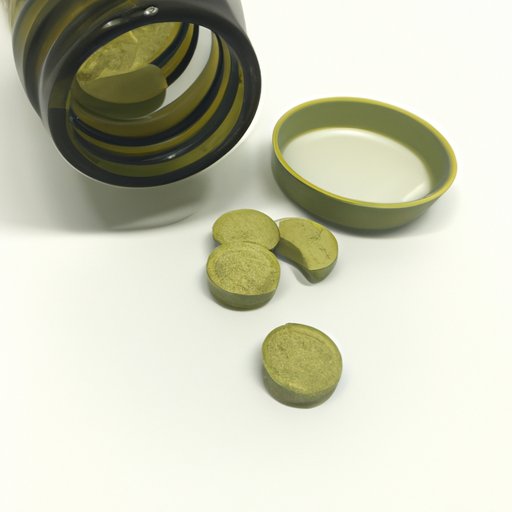
Introduction
Coughs are a common symptom of many illnesses, and cough medicines are often used to treat them. With so many cough medicines available, it’s easy to get confused about which one to use. One of the most common questions about cough medicine is what does ‘DM’ mean on cough medicine? In this article, we will decode the meaning of ‘DM’ on cough medicine and provide information to help you choose the right cough medicine for your needs.
Decoding the Mystery: Understanding What ‘DM’ Means on Cough Medicine
‘DM’ stands for dextromethorphan, which is a cough suppressant. It works by acting on the brain to reduce the cough reflex. Cough medicines that contain DM are often labeled as ‘DM’ or ‘DMX’ (which may also contain other active ingredients, like guaifenesin). Non-DM cough medicines may contain other active ingredients, like codeine, which work by reducing the sensitivity of the cough reflex.
DM cough medicines are often preferred over non-DM cough medicines because they are less likely to cause addiction and have fewer side effects. They are also safe to use in children over the age of six.
The Difference Between DM and Non-DM Cough Medicines: Which One Is Right for You?
Coughs can be caused by many different factors, including allergies, infections, and irritants. The type of cough you have will determine which type of cough medicine is best for you.
If you have a dry cough that is not accompanied by mucus, a DM cough medicine may be more effective than a non-DM cough medicine. DM cough medicines are designed to suppress the cough reflex and can help relieve irritating coughs.
However, if you have a productive cough (one that produces mucus), a non-DM cough medicine may be more effective. Non-DM cough medicines containing active ingredients like guaifenesin can help loosen mucus and make it easier to cough up.
It’s important to note that DM cough medicines should not be taken with other medications that can also suppress the cough reflex, like codeine or morphine. This can increase the risk of serious side effects like respiratory depression and should only be done under the guidance of a doctor.
Exploring the Science Behind DM: How It Works to Treat Coughs
DM cough medicines work by acting on the brain to suppress the cough reflex. When you take a DM cough medicine, it is absorbed into your bloodstream and travels to your brain, where it attaches to receptors that control the cough reflex.
Studies have shown that DM can be effective in reducing coughing, although its effectiveness may vary depending on the formulation of the cough medicine and the individual taking it. Some DM cough medicines may work better for certain types of coughs than others.
The Benefits and Risks of DM Cough Medicines: What You Need to Know
DM cough medicines have several benefits over non-DM cough medicines, including fewer side effects and less risk of addiction. However, it’s important to be aware of the potential risks and side effects of DM cough medicines before using them.
DM cough medicines can be toxic in large doses and may cause serious side effects like dizziness, drowsiness, and nausea. They can also interact with other medications, like antidepressants or antihistamines, and should be used with caution in people with certain medical conditions, like liver disease.
Everything You Wanted to Know About DM in Cough Syrup but Were Afraid to Ask
Here are some common questions and concerns about DM cough medicines:
- Can you get addicted to DM cough medicines?
No, DM cough medicines are not addictive. - What is the recommended dosage of DM cough medicine?
Dosage depends on age and weight. Follow the instructions on the label or consult your doctor or pharmacist for guidance. - Can DM cough medicines be taken with other medications?
DM cough medicines should not be taken with other medications that can also suppress the cough reflex, like codeine or morphine. Always consult your doctor or pharmacist before taking any new medications.
If you have any other questions or concerns about DM cough medicines, consult your doctor or pharmacist.
Conclusion
Cough medicines can be a useful tool in treating coughs, but it’s important to choose the right one for your needs. DM cough medicines can be effective for dry, irritating coughs, but non-DM cough medicines may be more effective for productive coughs. Always consult a doctor or pharmacist before using any cough medicine, especially if you are unsure about which type is right for you.




